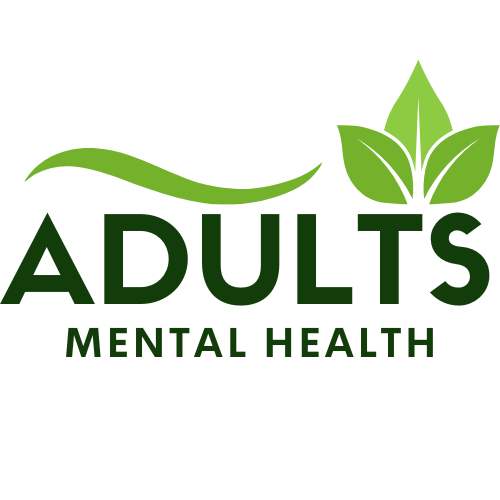The Role of Social Networking Sites in Mental Health
Social Media and Our Mind: The Guiding Principles
In today’s hyperconnected world, social media is a double-edged sword. From fostering communities to fueling anxiety, its relationship with mental health is complex and context-dependent. Platforms like Instagram, X, and TikTok, where billions scroll daily, shape our connections, information consumption, and emotions. But is social media a friend or foe to mental health? This article explores its pros, cons, and practical tips for mindful engagement to promote well-being.
How Social Media Can Support Mental Wellness
Social media isn’t just about likes and filters—it can be a powerful tool for mental health when used strategically.
Building Supportive Online Communities
Social platforms provide spaces for support and understanding. From Reddit threads for anxiety sufferers to X communities sharing mindfulness tips, these spaces connect people with shared experiences.
Real-Life Example: The hashtag #MentalHealthMatters on X has sparked global conversations, with users sharing coping strategies and stories of resilience.
Benefit: These communities reduce isolation, fostering a sense of belonging critical for mental health.
Access to Mental Health Resources
Social media serves as a gateway to mental health resources, from therapy apps to expert-led webinars. Influencers and organizations like the National Alliance on Mental Illness (NAMI) share tips on stress management, self-care, and seeking professional help.
Case Study: In 2024, NAMI used Instagram to promote free mental health workshops, reaching over 500,000 users.
Actionable Tip: Follow reputable accounts like NAMI or licensed therapists for evidence-based advice.
Encouraging Self-Expression and Creativity
Platforms like TikTok allow users to express themselves through art, storytelling, or journaling prompts, reducing stress and boosting self-esteem.
Example: Pinterest’s journaling prompts encourage users to reflect and process emotions.
Why It Matters: Creative expression builds emotional resilience and fosters a positive self-image.
The Dark Side of Social Media: Mental Health Risks
Despite its benefits, social media’s negative effects on mental health are significant. Understanding these risks is key to using it wisely.
Comparison Culture and Low Self-Esteem
Curated online lives can trigger feelings of inadequacy. Constant exposure to others’ highlight reels often leads to unhealthy comparisons.
Statistic: A 2023 study found that 60% of teenagers reported lower self-esteem after excessive Instagram use.
Impact: This comparison culture can fuel anxiety, depression, and body image issues.
Doomscrolling and Information Overload
Endless negative news and polarizing content—known as doomscrolling—can heighten stress and anxiety.
Expert Insight: Dr. Lioubov Robman, a San Francisco-based psychologist, notes that excessive negative content increases irritability in her clients.
Example: During global crises, overwhelming X updates can exacerbate emotional distress.
Solution: Limit news exposure and curate a positive feed.
Addiction and Sleep Disruption
Social media’s addictive design can lead to excessive use, sacrificing sleep and productivity.
Fact: A 2024 poll revealed 70% of young adults check social media within five minutes of waking up.
Result: Disrupted sleep increases stress and mood disorders.
Practical Tips for Mindful Social Media Use
Maximize social media’s benefits while minimizing its risks with these strategies:
- Enforce Time Limits: Use apps like Freedom or Screen Time to cap daily social media use at 1–2 hours.
- Curate Your Feed: Unfollow accounts that trigger negativity and follow those that inspire or educate.
- Be Active: Engage actively by sharing content to spark meaningful conversations.
- Take Digital Detoxes: Schedule regular breaks from social media to reset.
- Prioritize In-Person Connections: Balance online interactions with real-world relationships.
Why Mindfulness Matters: Use social media intentionally, being mindful of what you consume and how it affects your emotions.
Social Media and Mental Health in 2025
As platforms evolve, so will their impact on mental well-being. In 2025, expect advancements like:
- AI-Powered Wellness Tools: Platforms like X are testing AI chatbots for instant mental health support.
- Content Moderation: Stricter policies to reduce harmful content and promote positivity.
- Digital Well-Being Features: Apps may include reminders to take breaks or mood-tracking tools.
While these innovations signal progress, personal responsibility remains crucial for healthy social media use.
Conclusion: Regain Your Social Media Freedom
Social media can connect, educate, and inspire, but it also poses risks like comparison, addiction, and stress. By curating your feed, setting boundaries, and using platforms mindfully, you can make social media a tool for growth rather than a source of strain. Start today by auditing your social media habits—what’s one small change you can make to protect your mental health? Share your thoughts in the comments or join the conversation online for tips on thriving in the digital age.
Frequently Asked Questions
How do social networks influence mental health?
Social media can foster community and provide resources but, when overused, may contribute to anxiety, depression, low self-esteem, and sleep issues.
Can social media cause anxiety?
Yes, comparison culture, doomscrolling, and information overload on platforms like Instagram or X can increase anxiety.
How can I use social media to support my mental health?
Follow uplifting accounts, engage in meaningful discussions, set time limits, and take regular breaks to maximize benefits.
Are there mental health resources on social media?
Yes, platforms like X and Instagram host reputable organizations and professionals offering coping strategies and support resources.

